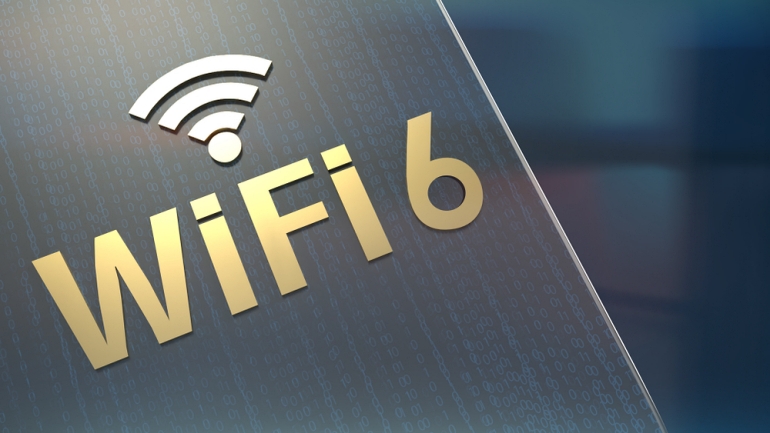NTT DoCoMo partners with Ericsson and Keysight on 6G NTT DoCoMo has announced the expansion of its experimental 6G trials, for which it has teamed with Ericsson and Keysight. The collaboration with Ericsson will concentrate on new 6G wireless interfaces for frequencies ranging from 6 to 15 GHz, as well as the sub-TeraHertz band, which encompasses frequencies exceeding 100 GHz. The collaboration with Keysight will put ultra-wideband communications across sub-THz frequencies to the test. DoCoMo has also announced that it is working on a RAN intelligent controller that will be interoperable with base station equipment from several Open RAN manufacturers. Read more at: https://tinyurl.com/bdzy6j9f Huawei showcases its commitment to green technology During MWC2023, Huawei sponsored the European Carrier Executives Roundtable, where Zhou Yu, Huawei’s network consulting and system integration domain president, addressed Huawei’s value proposition and innovative techniques in the green target network domain. The observations and remarks emphasized Huawei’s…
TIA releases supply chain security standard The Telecommunications Industry Association (TIA) has compiled the SCS 9001 specification, which it claims is the world’s first supply chain security standard designed particularly for the ICT industry. The SCS 9001 standard applies to all ICT sector goods, including software, hardware and services that are linked to the association’s global networks. SCS 9001’s goal is to validate end-to-end cyber and physical security throughout ICT network infrastructure. The new standard is based on a Quality Management System (QMS) that operationalizes industry best practices and recommendations such as ISO 27001, the Prague Proposals, applicable NIST standards, and the CSIS Criteria for Security and Trust. Read more at: https://tinyurl.com/2p8hzdru Metro by T-Mobile US now part of the Affordable Connectivity Program Metro by T-Mobile has joined the federal government’s Affordable Connectivity Program (ACP). All eligible Metro by T-Mobile customers, new and old, will be able to obtain free…
Telefonica partners with Oracle Telefonica Spain has signed a multi-year agreement with Oracle to accelerate the transfer of its business processes to the cloud in order to improve agility and expand its capacity to create new digital services. Oracle will deploy and operate an on-premises version of its Exadata Cloud Service in Telefonica’s data centers as part of the arrangement. The operator will be able to combine its mission-critical systems while still fulfilling data residency and latency requirements. Telefonica intends to migrate its Oracle database systems, as well as its OSS and BSS applications, business intelligence systems, CRM, billing, and revenue management systems, to the new platform. Read more at: https://tinyurl.com/3darh7jd NTT Docomo targets net zero emissions by 2030 NTT Docomo said that by 2030, it intends to reduce its greenhouse gas emissions to zero. As part of that effort, Docomo has announced the launch of a new ecosystem called…
Swedish vendor Ericsson has signed an agreement to provide a 5G “core” to Virgin Media O2, a new company established by a merger between Virgin Media and the mobile operator O2. Ericsson will build a VMO2 standalone 5G core, that will incorporate 4G and non-standalone 5G cores, to create dual-mode 5G core, as referred to by Ericsson. The vendor has been a supplier to mobile operator O2 UK for quite some time now. The previous deal between the two companies focused on an ongoing “network modernization program” that was introduced in June 2020. Since the older core used by O2 was also that of Ericsson, it was appropriate to continue with the same technology vendor. Moreover, the new agreement also allows Virgin Media O2 to provide a standalone 5G service. UK operators have based their 5G launches on a “non-standalone” architecture that allows the 5G RAN to revert…
The GSMA has announced that the mobile industry will need an average of 2 GHz mid-band spectrum to meet the data speed requirements of the UN International Telecommunications Union (ITU). The study evaluated 36 cities around the world and concluded that policymakers should license the spectrum of mobile operators in harmonized bands such as 3.5 GHz, 4.8 GHz and 6 GHz to meet ITU requirements by 2030. According to their claims, the additional spectrum will make it possible to use 5G to its full potential. As claimed by the global study, achieving this will reduce the environmental impact and costs for 5G users, as additional spectrum will lessen the carbon footprint of networks by two to three times, strengthening the sustainable development of mobile communications at the same time. In addition, the availability of mid-band frequency spectrum will also improve Fixed Wireless Access (FWA). The research shows that…
Juniper Networks, an American multinational corporation that develops and markets networking products, has announced a partnership with PBX-Change, a VoIP and Internet service provider. From now on, PBX-Change will be able to introduce customers to the innovative Flexible Service Edge technology of Juniper’s Software-Defined Wide Area Network (SD-WAN), that provides business quality Unified Communications (UC) and business continuity services. Combining Juniper’s Flexible Service Edge technology with the capabilities and features offered by PBX-Change will assist customers in optimizing their networks by providing high-speed priority services for critical business applications. PBX-Change is Tampa’s leading provider of business voice and ultra-high-speed Internet services, specializing in voice, cloud and Gigabit + Internet services. The company is recognized for providing exceptional services to local and national customers. Ryan Yaldor, CTO of PBX-Change, commented: “From the very beginning, our company’s cornerstone has been the dedicated, specialized service that we offer all of…
The Wi-Fi Alliance, a non-profit organization that promotes and certifies Wi-Fi technology, has officially announced the launch of the Wi-Fi 6 certification program. Wi-Fi 6, also known as “AX Wi-Fi” or “802.11ax Wi-Fi”, is the next-generation standard in Wi-Fi technology and is an improvement on the current 802.11ac Wi-Fi standard. This initiative promises a range of new features and capabilities designed to create more efficient overall Wi-Fi network performance in challenging environments supporting multiple connected devices. Edgar Figueroa, President and Chief Executive Officer of the Wi-Fi Alliance, said, “Wi-Fi Certified 6 is ushering in a new era of Wi-Fi, building on Wi-Fi’s core characteristics to provide better performance in every environment for users, greater network capacity for service providers to improve coverage for their customers, and new opportunities for advanced applications. Wi-Fi Certified 6 will deliver improvements in connectivity, including in high density locations and IoT environments.” According to…
A cloud-hosted, VoIP-powered PBX is an attractive and preferred option for a modern business telephone service. It is extremely cost effective, available for use anytime and almost anywhere, and requires none of the hardware investment that traditional on-premises systems needed in the past. With maturing technology and the desired convenience in business communication, now is the right time for change. Switching to a hosted private branch exchange (PBX) may sound complicated, however a well-thought-out transformational process can be smooth and hassle-free. Let’s discuss the main points to consider when moving from a traditional voice system to a cloud PBX. PBX systems – traditional vs virtual To begin with, it is important to understand the main differences between a traditional PBX and a cloud PBX. A legacy PBX is an enterprise phone system stored and hosted on the customer’s premises, and consists of specialized hardware, generally connected using circuit switched networks.…
Singapore’s leading telecommunications company, Singtel, has launched their cutting-edge network automation platform called Liquid Infrastructure. The platform is designed to help enterprises configure their networks, bringing deployment control and agility to the next level. Singtel presents Liquid Infrastructure as the ideal solution to ease the digital transformation process for companies, and at the same time helping to manage their network resources, saving time and money. “With Liquid Infrastructure, Singtel revolutionises the way network services are delivered to enterprises. We have integrated software-based network services to this platform to provide a versatile, robust and scalable solution that delivers critical network services where and when they are needed. By having the control of connectivity in the hands of our customers, we facilitate their transformation to the digital era through a superior and more agile network deployment and management experience,” said the Vice President of Global Products at Singtel’s Group Enterprise,…












